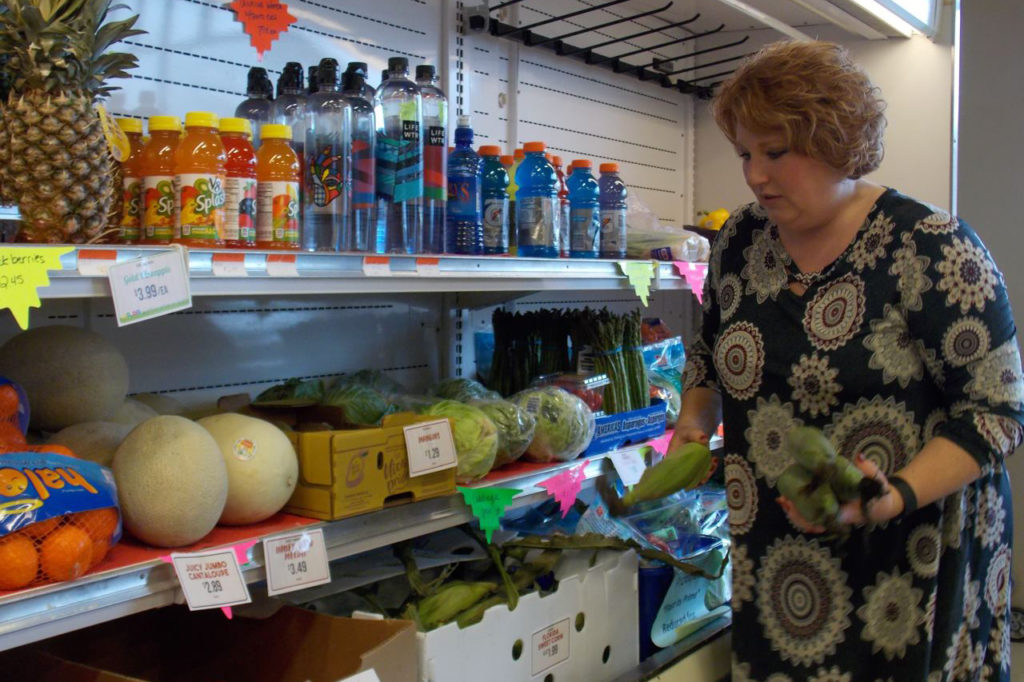
As a youngster in tiny Jackson, South Carolina, Kenny Brown remembers the weekly 40-mile roundtrip haul to the closest supermarket for groceries and supplies.
“If you forgot something, you would have to start making a list and wait a week, or ask a neighbor,” said Brown, key accounts manager at Aiken Electric Cooperative.
Brown now lives in Aiken County with his family, but a “food desert” still exists in Jackson. That’s an area where at least 500 people, or at least 33 percent of the population, live more than 1 mile from a large grocery store, according to the U.S. Department of Agriculture. Jackson is home to 1,700.
“It can be an all-day affair,” Brown said of the hour-long roundtrip trek for fresh produce and meat at the nearest supermarket in Aiken. “For me, if I want something, I can go out and grab it.”
A nearby dollar store sells some groceries, “but it’s more like a gas station convenience store. It’s not a place to get meat or eggs,” said Brown.
Jackson’s days as a food desert—an urban or rural area lacking access to healthy food—are about to end, thanks in part to Aiken Electric. Just in time for the Christmas holidays, a Fresh Market IGA, the first supermarket in nearly 15 years, is scheduled to open in December.
A full-service grocery store has been Jackson Mayor Todd Etheredge’s No. 1 priority for the last 10 years. The IGA deal is the town’s third attempt at bringing one to the area.
“It got to the point where people were asking me, ‘When are you going to bring us a store?’ The local IGA will mean a lot to the community,” said Etheredge. “For one thing, it’ll mean jobs,” about 30 to 50 part- and full-time positions.
Etheredge credited a $350,000, pass-through federal loan from Aiken Electric, and other incentives approved by the county council, for attracting the store to Jackson, a bedroom community outside Augusta, Georgia.
“The sad truth of the matter is that people need incentives to come to the community,” said Etheredge, who noted that Aiken EC went “the extra mile” in helping the Jackson area, where about 1,000 co-op members live.
The last decent grocery store serving Jackson and its surrounding areas went out of business 13 years ago. The independent store was a community fixture for 50 years, said Brown, adding “we all worked there at some point in our lives.”
But 13 years ago, the owners retired and their daughter didn’t want to take over the business.

In rural areas, residents can be more than 10 miles from a major supermarket, according to the USDA. In North Dakota, that distance rises to nearly 50 miles, according to the North Dakota Association of Rural Electric Cooperatives.
“A few years ago, we started getting larger-than-normal requests for help from rural grocers and began wondering whether something had shifted in their industry,” said Lori Capouch, rural economic director at the statewide in Mandan. “For example, we learned that of 134 stores in populations less than 2,100, seven had closed.”
That’s when the co-op association formed the North Dakota Rural Grocery Initiative, which consists of grocers; North Dakota State University and Dakota College; the North Dakota Farmers Union; the USDA Rural Development state office and Northern Plains Electric Cooperative in Cando.
“Our goal is to help grocers become successful,” said Capouch, by tackling barriers to staying in business with technical assistance, grant-writing services and access to public and private resources.
One of those barriers is affordability and availability of food supply. “Little rural towns are out of the way for full-service providers, so volunteers make weekly or biweekly trips to the Wal-Mart or Sam’s Club for supplies to resell and they have to get products from convenience store suppliers at a higher cost,” said Shirley Reese, manager of Main Street Market in Hazelton, North Dakota.
But through the initiative, “I’ve learned how to negotiate and work with suppliers,” said Reese. Sales have nearly doubled. “The initiative has lots of networking and we reach out to grocers to give them tips.”
If a grocery store closes, it has “a snowball effect,” said Reese. “Families move out, restaurants leave and schools close. People won’t want to live here and what happens is that the place becomes a ghost town.”
When the 15,000-square-foot Fresh Market IGA opens in Jackson, South Carolina, Etheredge is hoping for new people and new development. “It will be a lot easier to sell homes if they know they’re near a grocery store,” he said. “We’re hoping the store will kick start our little town.”
Victoria A. Rocha is a staff writer at NRECA.